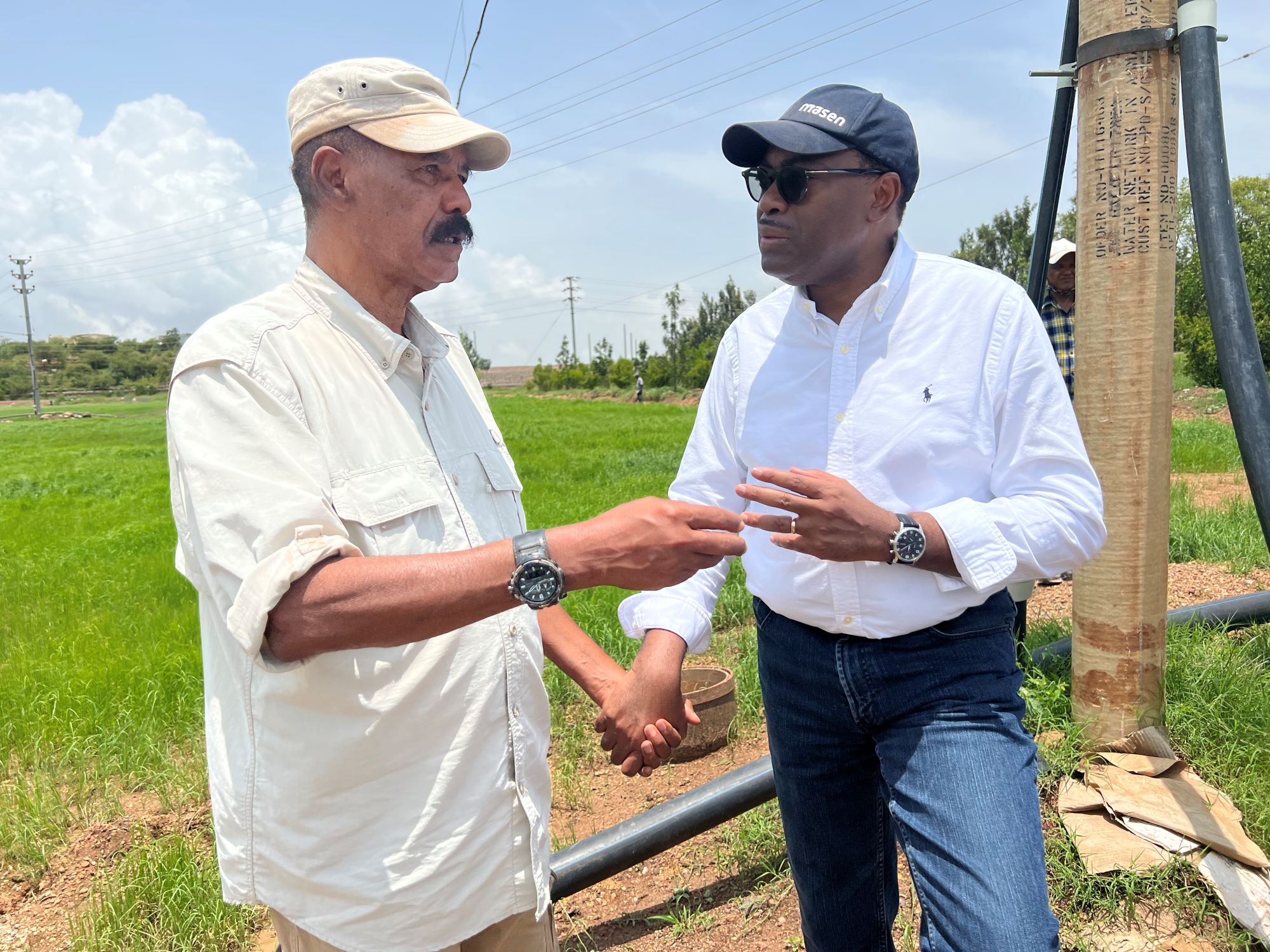In just three years, Eritrea has successfully leveraged its local engineering expertise and mobilised thousands of its citizens, including students from its technical and vocational institutions, to construct the Msilam dam.
This has come after a long period of grappling with a scarcity of freshwater, arising from the country’s irregular rainfall patterns.
These patterns have rendered the majority of its land barren, posing a significant challenge for Eritreans whose livelihoods rely on agriculture and livestock.
The Msilam Dam, situated in the village of Gerbera,has a substantial capacity of 350 million cubic metres.
This infrastructure project, funded and constructed by the Eritrean government, plays a critical role in supplying clean water to various communities, including Dekemhare, Debarwa, Mendefera, and neighbouring towns.
Eritrea transformative changes
Beyond its primary function of ensuring clean drinking water access, the dam has evolved into a driving force for transformative changes in livestock, agriculture, and industrial sectors.
It aligns seamlessly with Eritrea’s national strategy and sustainable development policy, paving the way for increased productivity and economic growth.
Building upon the success of the Msilam Dam, Eritrea has further expanded its infrastructure with the construction of the Adi Halo Dam.
The Msilam Dam’s abundant water resources have created an ideal environment for dairy farming in the region.
As a result, the area is now proudly hosting the Halhale Dairy Farm, which is an integral part of an agro-processing facility dedicated to the production of meat and dairy products.
The farm spans over 550 hectares of land, and had its humble beginnings in 2017, starting with a herd of 660 cattle. Since then, the number of cattle at the Halhale Dairy Farm has steadily grown.
Eritrea’s Partnership With AfDB
Recognizing the potential and success of this innovative project, Eritrea is actively seeking the support of trusted partners such as the African Development Bank Group to further expand and enhance its operations.
Recently, Dr. Akinwumi Adesina, the President of the African Development Bank, conducted an official two-day visit to Eritrea.
During this visit, he had the opportunity to tour the extensive facilities alongside President Isaias Afwerki, gaining valuable insights into the remarkable progress and potential of the Halhale Dairy Farm and its associated agro-processing operations.
Afwerki expressed the government’s intention to utilise the Halhale Dairy Farm as a pilot project, aiming to replicate similar dairy farms across various regions of the country.
This plan is geared towards boosting the availability of dairy products and meat at affordable prices for the populace.
He further acknowledged the significant potential of Eritrea’s Msilam Dam and the Adi Halo Dam Water Project in driving commercial agriculture and food production.
He highlighted the possibility of these projects serving as hosts for the African Development Bank’s Special Agro-Industrial Processing Zones initiative.
AfDB Dedication to Supporting Eritrea’s Water Projects
In line with this, he announced that a delegation from the Bank would be visiting Eritrea in the forthcoming weeks to initiate the planning process.
“I am impressed by what I see here. There are 10,000 hectares of land to irrigate with the dam. And it is already irrigating 1,000 hectares.
“That is a lot of land for livestock and dairy. There are also areas where fruit and other crops are being grown. I am particularly impressed by the density of infrastructure here,” Adesina said.
He assured the Eritrean president that the African Development Bank is committed to assisting the country in establishing a financial system conducive to agro-industrialization.
He further emphasised that the African Development Bank would leverage resources from its Affirmative Finance Action for Women in Africa initiative to facilitate access to financial support for women farmers collaborating with local banks.
Besides the Msilam Dam, Eritrea also has the Adi Halo Dam water project, which the government launched in 2015 to address water scarcity in the capital.
The dam effectively stores 14 million cubic metres of water gathered from the ample rains that occur annually between July and September.
This operation is powered by a 2-megawatt solar power plant, which supplies the energy required to pump water for the irrigation of community-owned farmland.
One of the notable outcomes of this project is the enhanced availability of clean drinking water for households. This has played a pivotal role in addressing water scarcity issues and has contributed to an overall improvement in food security.

